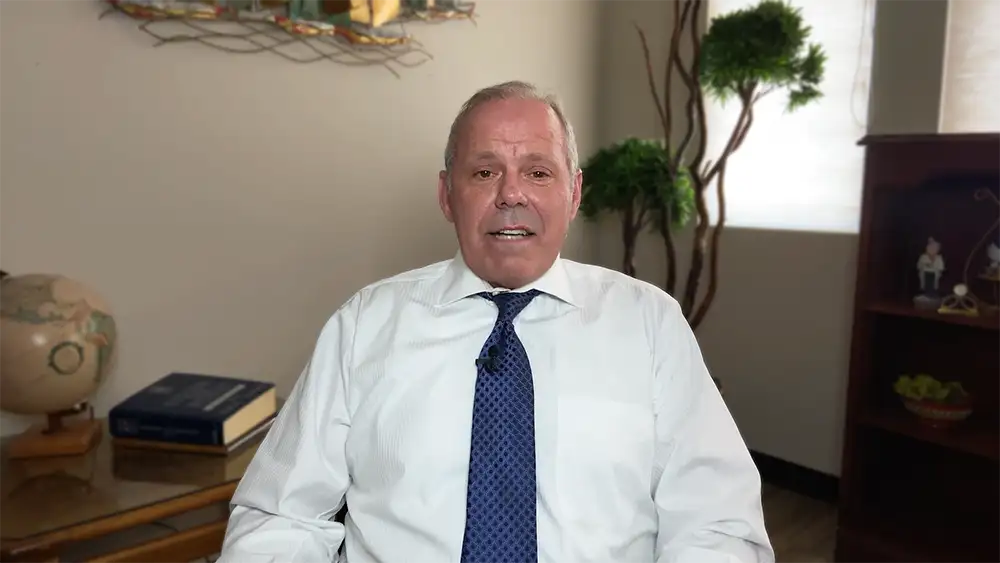At Arizona Oncology, we believe that compassion and connection should be present alongside clinical excellence. Few people embody this more than Dr. Marshall Davis, a longtime radiation oncologist based in Prescott. Dr. Davis brings not only decades of medical expertise to his patients—but also something even more powerful: personal experience. This National Cancer Survivor Month, we’d like to share his story.
Years ago, Dr. Davis found himself on the other side of the exam table. While working in the medical field, he noticed a lump during a self-exam and quickly sought out a urology colleague. Things moved fast. An ultrasound confirmed the presence of a tumor, and the next day he was in surgery to remove the cancerous testicle. Chemotherapy followed, but his battle was far from over.
Within a year, the cancer had returned—this time in his lymph nodes. He underwent additional surgery and radiation therapy, hopeful that this would be the end of it. But about eight months later, he discovered another lump, this time in his neck. It was cancer again. And so he faced another round of treatment, this time a more aggressive course of chemotherapy.
“It was right before Christmas and when I felt that lymph node, I almost cried because I’m well aware of how we treat testicular cancer when it recurs,” said Dr. Davis. “I knew my next chemotherapy regimen was going to be harsh, but it’s what I needed to do to prevent this cancer from spreading all over my body and killing me.”
Today, Dr. Davis has been cancer-free for over 12 years. But the experience has left a lasting impact—not just on his body, but on his heart and the way he practices medicine.
“You never get something for nothing,” he says, reflecting on the lingering side effects of treatment. “But you can live with the side effects. What you can’t live with is the cancer.”
His personal journey has given him a rare and invaluable perspective. When patients sit in front of him and talk about their fears—about mortality, about uncertainty, about how cancer will affect their families and their futures—he gets it. Because he’s been there.
“You worry about life, death, and everything in between,” he says. “I can tell you that having cancer and being a cancer survivor altered my outlook on how to take care of patients.”
Dr. Davis is known not just for his clinical skill but for his honesty and empathy. “You have to be honest with people about where they stand,” he says. “My philosophy is that it’s better to face up to bad news as soon as possible and then work together to come up with a plan to win the battle.”
That mix of transparency and compassion is what makes him such a valued member of the Arizona Oncology family—and such a powerful advocate for patients. His story is a reminder of how important early detection can be, and how even in the face of setbacks, it’s possible to move forward with strength and resilience.
“I am a cancer survivor – I had a very serious cancer, and received radiation therapy and chemotherapy, so I know what patients go through when they’re being treated and am very compassionate,” he says.
At Arizona Oncology, we’re proud to have physicians like Dr. Davis, who use every tool at their disposal—including their own life experience—to bring hope and healing to others. His journey is not just a story of survival. It’s a story of service, strength, and showing up for others when it matters most.
Watch a video of Dr. Davis talking about his experience here.
About Testicular Cancer:
Approximately 1 in 250 men will develop testicular cancer at some point during their lifetime, and Caucasian men are four to five times more likely to develop testicular cancer than African-American and Asian-American men. The average age of a man diagnosed with testicular cancer is 33. Approximately 6% of cases occur in children and teens, and about 8% occur in men over 55.
If detected early, testicular cancer is one of the most curable forms of cancer. With today’s treatments, testicular cancer survival rates are high, with 95% of men surviving five years after diagnosis. That number jumps to 99% if the cancer was localized in the testicle.



